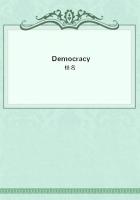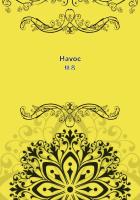The States are entirely free on this point. The usual course is to have one Supreme Court, sometimes called by that name, sometimes the Court of Appeals, and sometimes the Court of Errors. Then they have such especial courts as their convenience may dictate. The State jurisprudence includes all causes not expressly or by necessary implication secured to the national courts. The tribunals of the States have exclusive control over domestic relations, religion, education, the tenure and descent of land, the inheritance of property, police regulations, municipal economy, and all matters of internal trade. In this category, of course, come the relations of husband and wife, parent and child, master and servant, owner and slave, guardian and ward, tradesman and apprentice. So also do all police and criminal regulations not external in their character--highways, railroads, canals, schools, colleges, the relief of paupers, and those thousand other affairs of the world by which men are daily surrounded in their own homes and their own districts. As to such subjects Congress can make no law, and over them Congress and the national tribunals have no jurisdiction. Congress cannot say that a man shall be hung for murder in New York, nor if a man be condemned to be hung in New York can the President pardon him. The legislature of New York must say whether or no hanging shall be the punishment adjudged to murder in that State; and the Governor of the State of New York must pronounce the man's pardon--if it be that he is to be pardoned. But Congress must decide whether or no a man shall be hung for murder committed on the high seas, or in the national forts or arsenals; and in such a case it is for the President to give or to refuse the pardon.
The judges of the States are appointed as the constitution or the laws of each State may direct in that matter. The appointments, Ithink, in all the old States, were formerly vested in the governor.
In some States such is still the case. In some, if I am not mistaken, the nomination is now made, directly, by the legislature.
But in most of the States the power of appointing has been claimed by the people, and the judges are voted in by popular election, just as the President of the Union and the Governors of the different States are voted in. There has for some years been a growing tendency in this direction, and the people in most of the States have claimed the power--or rather the power has been given to the people by politicians who have wished to get into their hands, in this way, the patronage of the courts. But now, at the present moment, there is arising a strong feeling of the inexpediency of appointing judges in such a manner. An anti-democratic bias is taking possession of men's minds, causing a reaction against that tendency to universal suffrage in everything which prevailed before the war began. As to this matter of the mode of appointing judges, I have heard but one opinion expressed; and I am inclined to think that a change will be made in one State after another, as the constitutions of the different States are revised. Such revisions take place generally at periods of about twenty-five years'
duration. If, therefore, it be acknowledged that the system be bad, the error can be soon corrected.
Nor is this mode of appointment the only evil that has been adopted in the State judicatures. The judges in most of the States are not appointed for life, nor even during good behavior. They enter their places for a certain term of years, varying from fifteen down, Ibelieve, to seven. I do not know whether any are appointed for a term of less than seven years. When they go out they have no pensions; and as a lawyer who has been on the bench for seven years can hardly recall his practice, and find himself at once in receipt of his old professional income, it may easily be imagined how great will be the judge's anxiety to retain his position on the bench.
This he can do only by the universal suffrages of the people, by political popularity, and a general standing of that nature which enables a man to come forth as the favorite candidate of the lower orders. This may or may not be well when the place sought for is one of political power--when the duties required are political in all their bearings. But no one can think it well when the place sought for is a judge's seat on the bench--when the duties required are solely judicial. Whatever hitherto may have been the conduct of the judges in the courts of the different States, whether or no impurity has yet crept in, and the sanctity of justice has yet been outraged, no one can doubt the tendency of such an arrangement. At present even a few visits to the courts constituted in this manner will convince an observer that the judges on the bench are rather inferior than superior to the lawyers who practice before them. The manner of address, the tone of voice, the lack of dignity in the judge, and the assumption by the lawyer before him of a higher authority than his, all tell this tale. And then the judges in these courts are not paid at a rate which will secure the services of the best men. They vary in the different States, running from about 600l. to about 1000l. per annum. But a successful lawyer, practicing in the courts in which these judges sit, not unfrequently earns 3000l. a year. A professional income of 2000l. a year is not considered very high. When the different conditions of the bench are considered, when it is remembered that the judge may lose his place after a short term of years, and that during that short term of years he receives a payment much less than that earned by his successful professional brethren, it can hardly be expected that first-rate judges should be found. The result is seen daily in society. You meet Judge This and Judge That, not knowing whether they are ex-judges or in-judges; but you soon learn that your friends do not hold any very high social position on account of their forensic dignity.
It is, perhaps, but just to add that in Massachusetts, which Icannot but regard as in many respects the noblest of the States, the judges are appointed by the Governor, and are appointed for life.















